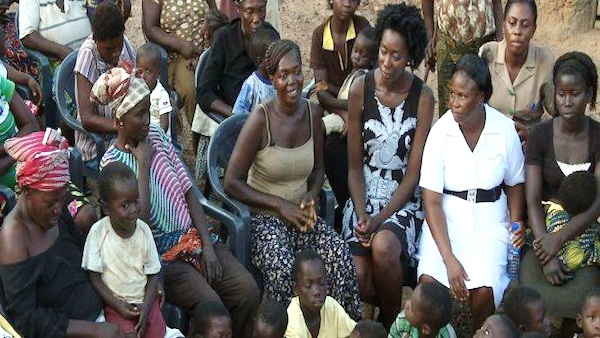
NGO supports needy girls in rural communities
The College for Ama (CofA) is an organisation that has taken the initiative to ensure that deprived girls in rural communities receive quality education.
This is in view of the recognition that though Ghana has achieved gender parity at the primary level in its educational system, the situation cannot be said to be the same when it comes to secondary education, especially at the tertiary level.
The boy-girl ratio widens more in the rural areas where barriers such as access to education, parents’ economic status and early marriages, among other issues, hinder the enrolment of girls.
In parts of rural Ghana, most girls are unable to pass the Basic Education Certificate Examination (BECE) to get into senior high school, and CofA serves as a bridge for these girls who are mentored and given extra tuition.
CofA, a non-governmental organisation, which started its summer mentoring programme in 2006 at Ashesi University's Labone campus, provides educational opportunities for adolescent girls in rural areas to enable them to attain college education.
Breaking the cycle of poverty
Although primary education in Ghana is free for all, society still favours boys over girls. Thus girls, especially in rural areas, are used as extra hands when needed and this prevents them from being regular in school and are sometimes withdrawn from school to work when families are in financial need.These girls most often end up marrying early and having children, thus continuing the cycle of poverty.
Established by Professor Nana Apt, Emerita Dean of Ashesi University, Ghana, CofA attempts to break this cycle by giving these girls the motivation and confidence towards a prolonged education.
According to Professor Apt, CofA aims to change the attitudes of intelligent and gifted young girls in rural areas of Ghana so they understand the advantages of education: delayed marriage, acquiring more wealth and prosperity, and thus having fewer children who they can look after better, including supporting them through secondary and higher education.
Annual summer training camps
CofA since 2006 has run a summer camp for girls from deprived, rural areas in Ghana, from ages 11 to 17. So far 300 girls from rural schools in the Central, Western, Greater Accra and Eastern regions have benefited.
In June, this year, a total of 61 girls from the Eastern Region were camped at the University of Ghana, Legon, for intensive training.
Using volunteer teachers and female university students as mentors, the girls were given extra tuition in Mathematics, General Science, English Language and Information, Communication Technology (ICT).
According to Prof. Apt, equal importance is given to creativity and innovation for personal and professional development. She said CofA's mission was to provide educational opportunities for adolescent girls in rural areas of Ghana to attain college education. CofA, she said, also promoted personal growth, self-esteem, discipline, respect for others and collective responsibility as it built the capacities of the young girls to achieve higher education.
“We address the social, emotional, physical, spiritual and educational needs of the young girls. We do not discriminate on the basis of ethnicity, religion or disability,” she said.
CofA creates an environment that celebrates the commonality of the human experience while respecting cultural, ethnic and political diversity as well as promote youth leadership and involvement in lifelong learning.
Testimonies
"Since I came to the CofA camp, my life has changed. I like to be here because here, no one will ask you to go sell or go and cook. I always find myself comfortably learning." Sarah Dapaah, 14, said.
"They teach us how to use the computer. They also teach us how to solve mathematics problems, how to read and how to write an essay. That makes us very happy. I thank the teachers for spending their time on us," Paulina Ewusi, 15, added.
Writer's email:
